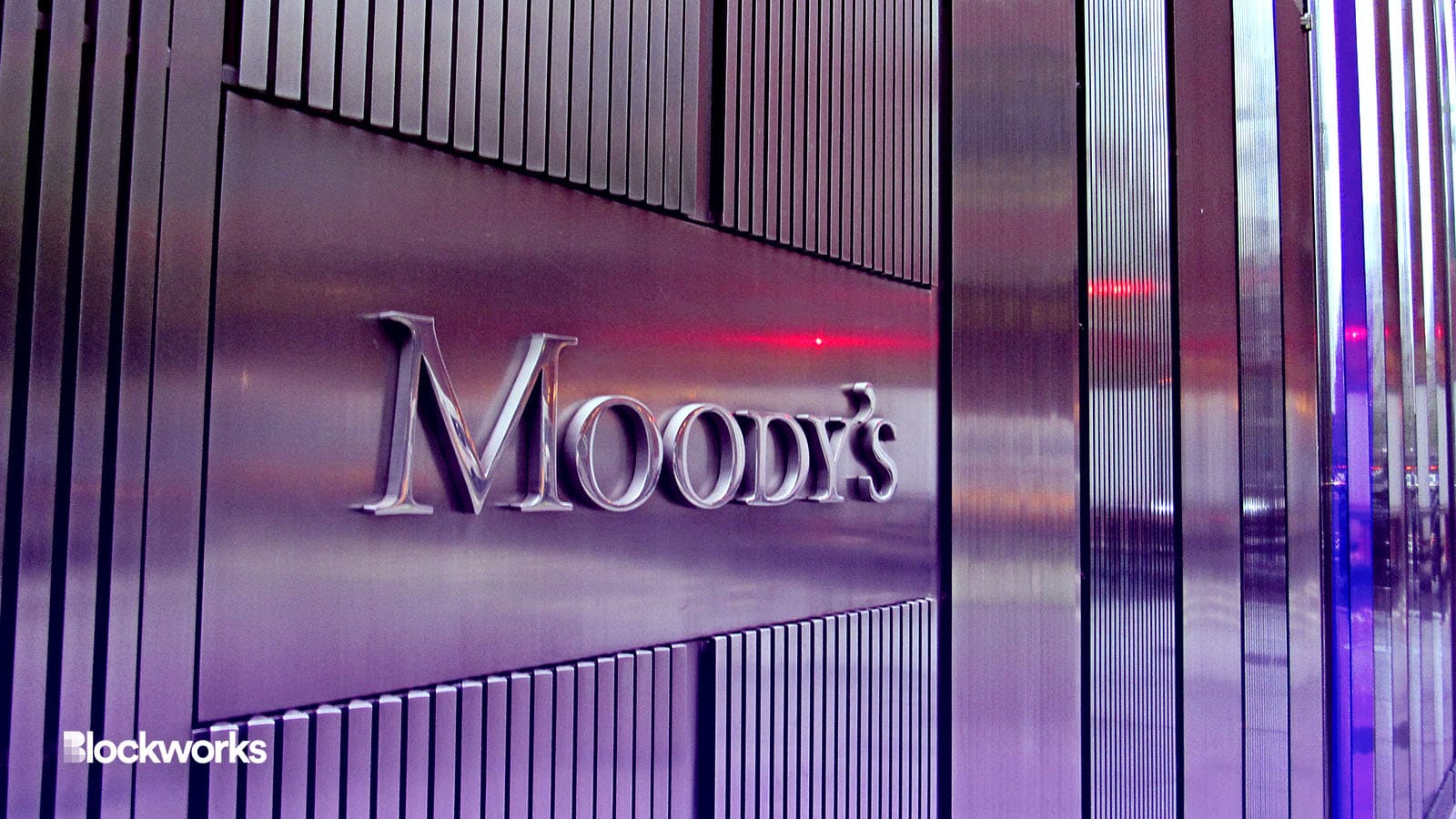Moody’s warns Coinbase faces serious consequences
Moody’s changed Coinbase’s outlook because of uncertainty about how the SEC charges will affect the business and money flow

Daniel J. Macy/Shutterstock, modified by Blockworks
Ratings agency Moody’s slashed Coinbase’s outlook to “negative” from “stable” two days after the Securities and Exchange Commission alleged that the exchange operated as an unregistered broker and sold unregistered securities since 2019.
A negative outlook suggests that the agency could downgrade Coinbase’s rating in the future.
Moody’s decision to change the outlook stems from uncertainty about how much the SEC’s charges will affect Coinbase’s business model and cash flows, the agency said in a statement published Thursday.
The commission also alleges that Coinbase’s staking-as-a-service products break the Securities Act of 1933 because “the Staking Program has five stakeable crypto assets, and each of these assets is considered an investment contract and therefore a security.”
The SEC further claims that Coinbase didn’t make sure that the crypto assets it sold were not considered securities according to the Howey test.
After the lawsuit, regulators from 11 states, including California and Washington, sent Coinbase a show cause order. The order requires Coinbase to explain why it shouldn’t be told to stop selling cryptocurrencies in those states within 28 days.
Moody’s warned that Coinbase could face some serious consequences from the regulators.
These might involve returning any money earned unlawfully, paying fines and penalties, and suffering setbacks in its staking rewards business and other activities.
The agency also noted that it’s unclear when and how these issues will be resolved and what it means for Coinbase’s finances.
Moody’s isn’t the only one warning about Coinbase’s rating. Berenberg analyst Mark Palmer slashed the company’s price target on Thursday from $55 to $39.
Coinbase has reacted to the SEC’s lawsuit by stating that the agency conducted a review of its business in 2021 and granted permission for the company to go public, despite the 2019 allegations made in the lawsuit.
Coinbase Chief Legal Officer Paul Grewal previously told Blockworks: “The solution is legislation that allows fair rules for the road to be developed transparently and applied equally, not litigation. In the meantime, we’ll continue to operate our business as usual.”
Get the news in your inbox. Explore Blockworks newsletters:
- The Breakdown: Decoding crypto and the markets. Daily.
- 0xResearch: Alpha in your inbox. Think like an analyst.






